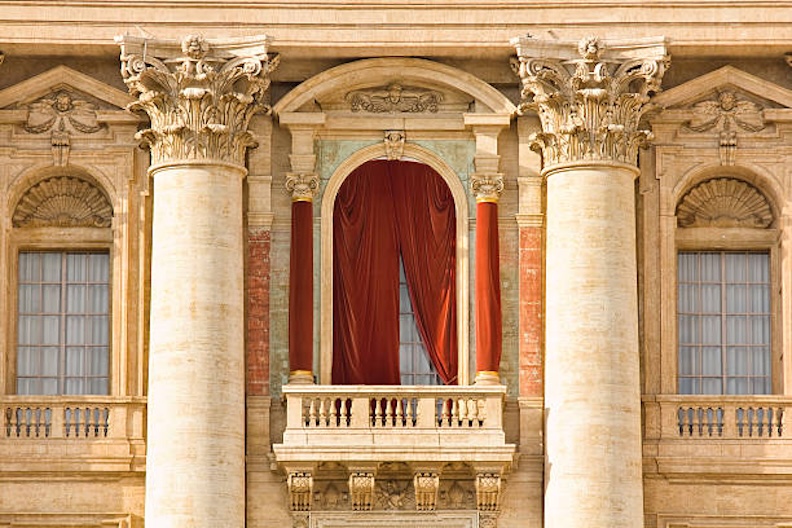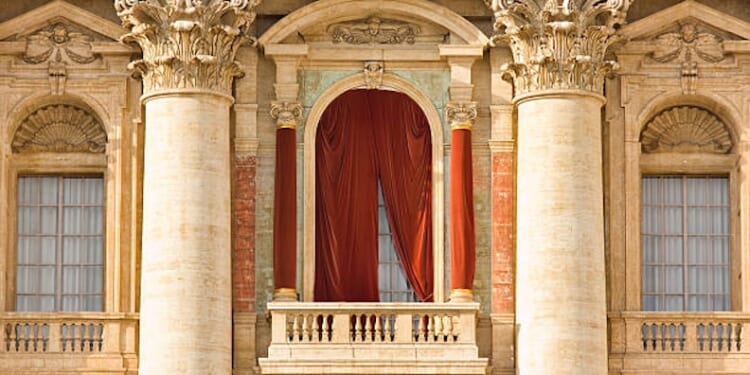One of the better ways of trying to understand a writer or speaker is to imagine what audience he thinks he’s addressing, and what he believes that audience most needs to hear. For the popes of the last half century or so, I think I pretty much understood what St. John Paul II and Benedict XVI were driving at, and the people they hoped to reach. With Francis – and now Leo – I’m much less sure. Because the world that they seem to think that they’re addressing is not the one that I believe I’m living in.
Item: Leo’s recent homily to “Synodal Teams and Participatory Bodies,” during which he remarked: “The supreme rule in the Church is love. No one is called to dominate; all are called to serve. No one should impose his or her own ideas; we must all listen to one another. No one is excluded; we are all called to participate. No one possesses the whole truth; we must all humbly seek it and seek it together.”
It caused a stir because some people interpreted this to mean denying revealed truths of the Faith in favor of the amorphous “walking together” and “dialogue” that Pope Francis hoped would synodalize the whole Church. That interpretation doesn’t seem entirely wrong, since Fr. James Martin, S.J. immediately highlighted those words for his usual causes.
But it doesn’t seem entirely right either, at least in Leo’s case. In fact, when he was addressing the members of the diplomatic corps accredited to the Holy See in May, he affirmed quite clearly that:
the Church can never be exempted from speaking the truth about humanity and the world, resorting whenever necessary to blunt language that may initially create misunderstanding. Yet truth can never be separated from charity, which always has at its root a concern for the life and well-being of every man and woman. Furthermore, from the Christian perspective, truth is not the affirmation of abstract and disembodied principles, but an encounter with the person of Christ himself, alive in the midst of the community of believers.
Yet whenever the subject is “synodality,” substantial affirmation of truth seems to become an embarrassing no-no, even a stumbling block. It’s been claimed lately that Leo is still using Francis’ team of speech writers. Perhaps so. And maybe once the whirlwind of the Jubilee is over, we’ll get more considered words from him. But if he had asked me to write that controversial speech about none of us possessing the whole truth, I would have emphasized that, particularly in our day, the vast majority of people already believe that no one, no church, no institution has the truth.
It’s far more urgent that they hear something like, “go and make disciples of all nations, baptizing them in the name of the Father and of the Son and of the Holy Spirit, and teaching them to obey everything I have commanded you.” (Matthew 28:19-20)

All Christians are, of course, “on the way,” since none of us has arrived at our final destination – yet we’re accompanied by revealed truths that guide us on our way, even as we strive to live them more fully.
Yet we have a second pope now who at times seems to assume that the people who actually pay some attention to what a pope has to say need to be warned not to be so sure they have a grip on Catholic truth. When I look around me in our flailing postmodern world anno Domini 2025, however, Catholics and non-Catholics alike are far more in need of assurances about the truth of God’s Word and the historic teachings of the Church.
In fact, this whole episode reminded me of arguments that I got caught up in some decades ago. At the time, two Protestant theologians – if memory serves – Stanley Hauerwas and George Lindbeck were talking about how Christian currents had changed in recent centuries.
I’m simplifying and probably garbling their central points, given the passage of time. But the historical part went something like this. Christianity had moved from what was basically an authoritarian posture (churches simply declared doctrines with an authority granted by Christ) to a period of individualism and lack of confidence. Then, having passed through the fiery brook (i.e., Feuerbach) of the modernist critique, the Faith was now on the other side and seeking to become authoritative.
I put forward this scheme once when I was invited to an ecumenical debate at a Methodist church in Washington, DC. Afterwards, the kindly young lady pastor told me how much she agreed. Her church, she said, had given up on claiming authority and let people pretty much do their own thing. She wondered how it might now be possible to get the authoritative back.
Catholics, of course, are familiar with the narrative that the Church, prior to Vatican II, was (allegedly) authoritarian; passed through a period of chaos and experimentation; then underwent, with St. John Paul and Benedict, something of a restoration of what’s authoritative.
But what’s changed since? Because here we are again, at a point where it seems that synodality is meant to encourage perpetual discussions – of what and why is not clear. If it’s the kind of conversation you have over how to do things to advance what God has revealed to us, that’s only prudent. But synodality has – denials notwithstanding – been creeping towards changes in doctrine itself, crab-wise, amorphously, almost imperceptibly. . .LGBTs, deaconesses, governance of the Church by people without ordained authority.
Whether that is the intention of either Francis or Leo, it’s certainly what has been communicated to the world.
So what time is it? Is this a time when Catholics are too closed in on truth and need to be opened up to dialogue and leaving behind what’s familiar and comfortable (another synodal theme)? Or are we now again failing to claim what’s authoritative? I know which it looks like to me. But I wonder how it looks from the windows of the Vatican.











